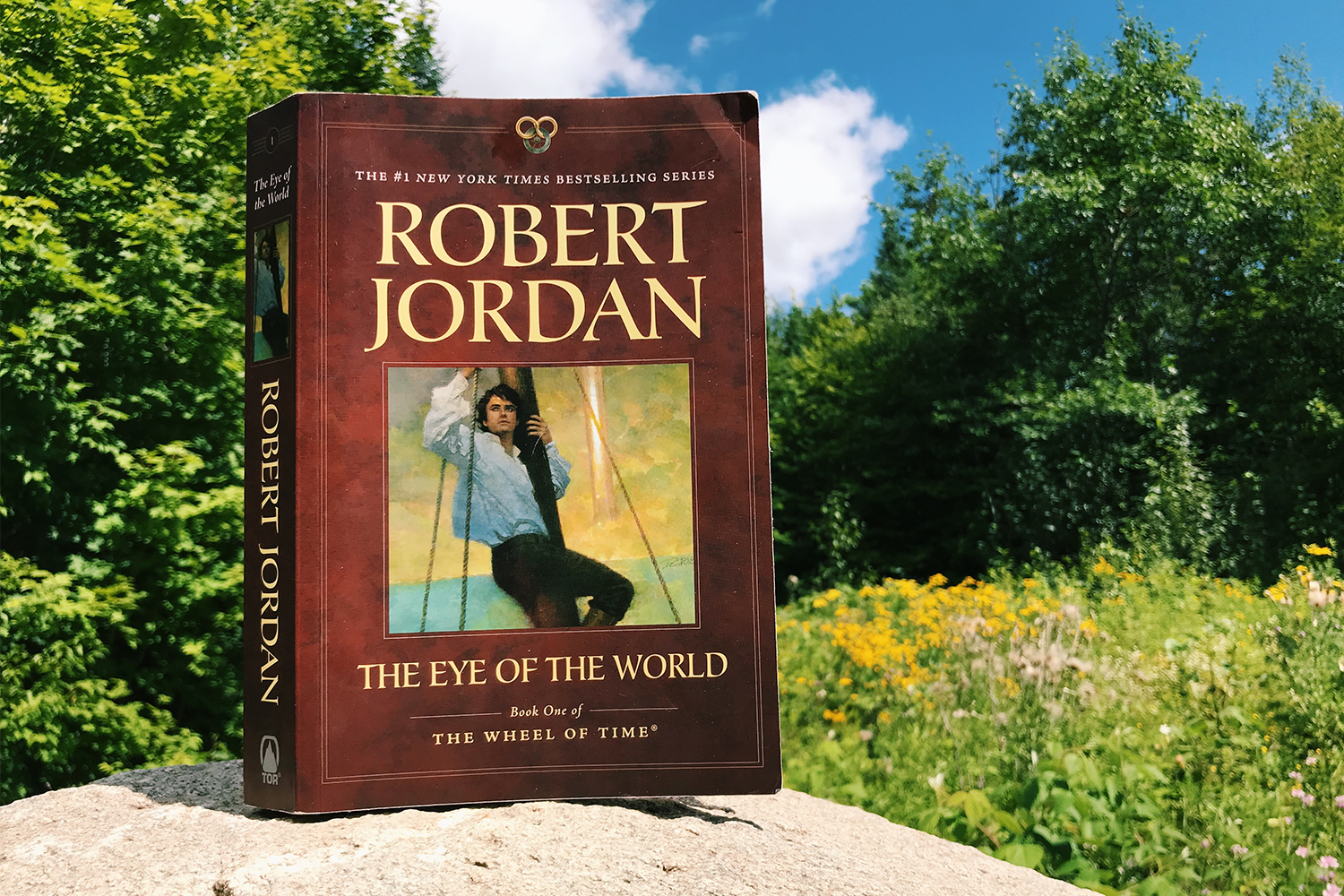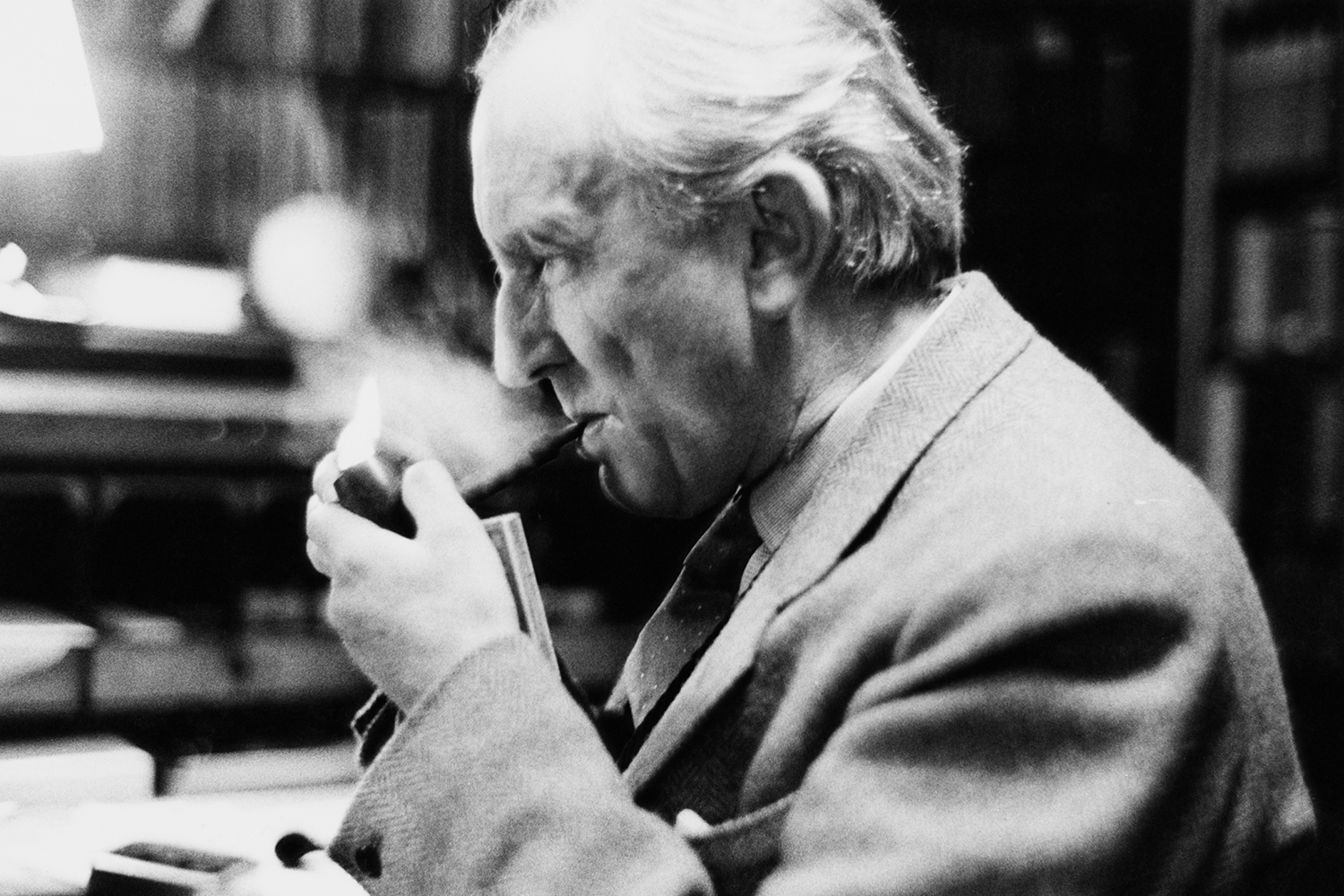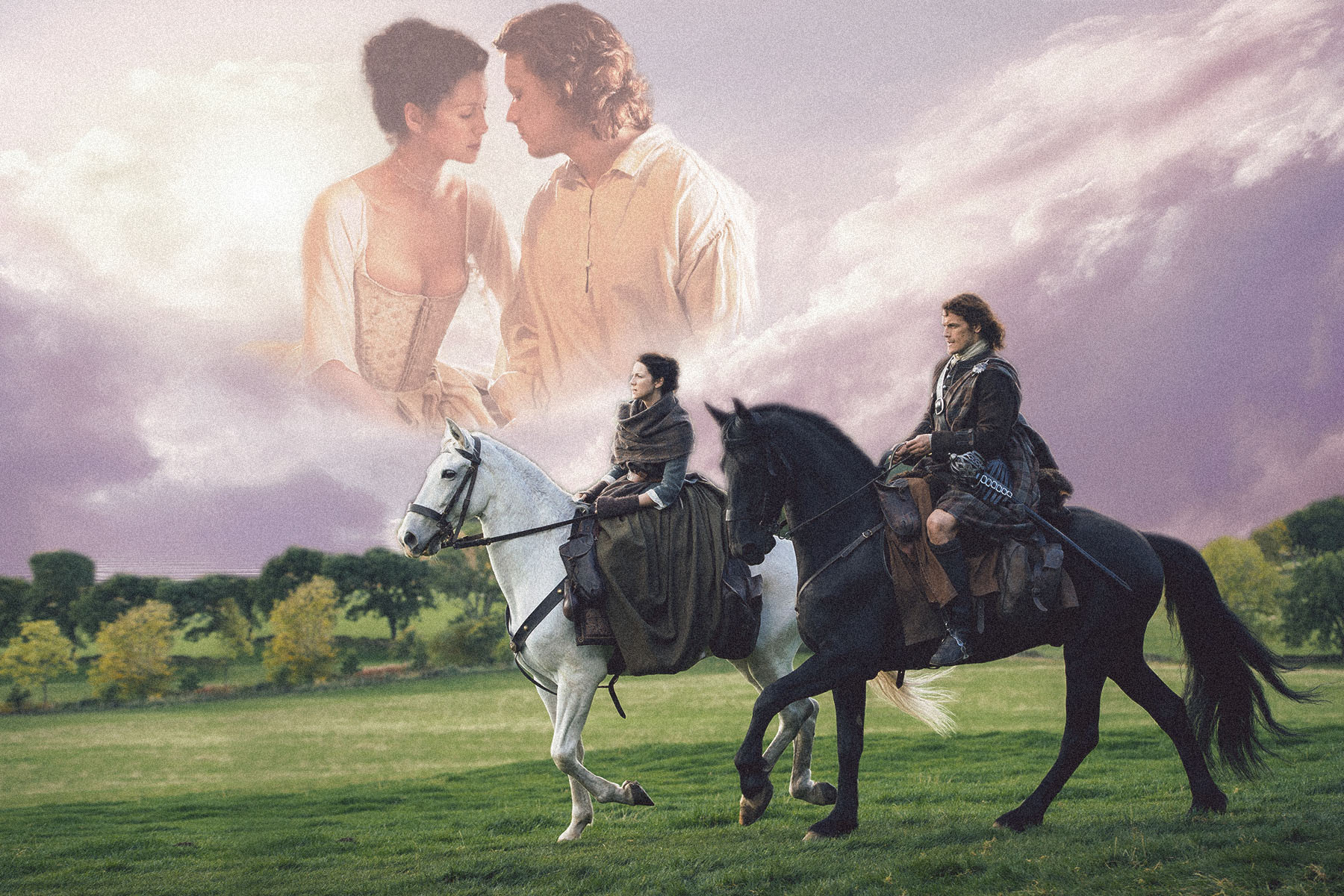While the general consensus is that the legacy of HBO’s Game of Thrones among viewers has been forever tarnished by the final season, its legacy in the world of film and TV is only just beginning to rear its dragon-sized head. Just as Christopher Nolan’s Dark Knight trilogy made people take comic book movies seriously, David Benioff and D.B. Weiss’s adaptation of George R.R. Martin’s book series A Song of Ice and Fire made people take the adaptation of science-fiction and fantasy seriously.
You might be under the impression that the massive critical and commercial success of the Lord of the Rings movies is what propelled fantasy into the mainstream. Yet, J.R.R. Tolkien, while certainly considered the father of modern fantasy, is often placed above the label of the genre, and the gigantic financial gamble New Line Cinema made on the movies is not one others were willing to make on lesser writers. Then, Game of Thrones came along and proved it was worth it for all players, from movie studios to streaming giants, to allocate massive budgets and top talent to the section of your local bookstore filled with swords and spaceships.
This weekend, Dune, based on the book by Frank Herbert, gets a big-budget redo at the hands of Denis Villeneuve starring golden boy and girl Timothée Chalamet and Zendaya. Next month, the first season of The Wheel of Time, based on the 14-book series by Robert Jordan, premieres on Amazon Prime Video, and it’s already been renewed for a second. Earlier this month, we got the first look at House of the Dragon, HBO’s Game of Thrones prequel that’s set to debut sometime in 2022 (the teaser has garnered nearly 13 million views in two weeks, an indication that people aren’t exactly over Thrones just yet). Then there is Amazon’s upcoming Lord of the Rings TV series, which is set thousands of years before Tolkien’s main books, that is set to debut in September and currently has two seasons officially announced. And those are just the highlights.
That’s the long way of saying viewers today have enough sci-fi and fantasy content that they need not read any of the books that inspired it in the first place. But if you only consume the screen-adapted versions, you’re not only missing out on the characters and plot lines that were hacked and slashed to fit the story into a reasonable time frame (and reasonable CGI budgets), you’re missing out on the larger worlds the authors created.
“Words, which are ambiguous and slippery, have more metaphoric and symbolic power than images, which are concrete and fixed,” Verlyn Flieger, a leading Tolkien scholar who doesn’t care for screen adaptations, told me recently. “Movies rely on actors, who can be effective, but are limited by their own bodies (even with CGI and special effects) while the theatre in a reader’s head has a cast of thousands.”
If you want to experience that ambiguous and slippery world after being inspired by the various otherworldly movies and series coming out these days, we’ve got you covered with 12 of the best fantasy and sci-fi books for adults who may or may not have thought they’d ever be into fantasy and sci-fi books. We’ve skipped over some of the no-brainers — The Hobbit, The Lord of the Rings, A Song of Ice and Fire, The Hitchhiker’s Guide to the Galaxy — but have included some of the novels that inspired these recent screen projects as well as a number of recommendations from experts in the field, from other authors to booksellers.
Books That Are Being Adapted for the Screen

The Wheel of Time by Robert Jordan
A personal favorite of mine that I’ve championed before, The Wheel of Time series follows a group of friends from a sleepy pastoral town on an epic fantasy adventure that pits them against an ultimate evil known as the Dark One. Yes, there is a main character here, Rand al’Thor, but the beauty of Robert Jordan’s story is its commitment to an impossibly large cast of characters (the main group runs the gamut from magic-wielding women to a man who can talk to wolves). Jordan passed away before finishing the series, so acclaimed author and fan Brandon Sanderson co-authored books 12 through 14. Amazon’s TV series debuts on November 19.

The Fall of Gondolin by J.R.R. Tolkien
One of the many posthumous works of Tolkien edited and published by his son Christopher, The Fall of Gondolin is the most recent story to be added to the collection of works dealing with Middle-earth. It takes place in the First Age (The Lord of the Rings takes place in the Third Age), and tells the tale of an Elvish city besieged by the evil overlord Morgoth. As Amazon’s upcoming series takes place in the Second Age, reading this well-reviewed tome will give you some great bookend perspective.

Dune by Frank Herbert
While Dune is possibly the best-selling sci-fi book of all time, and Frank Herbert’s work has served as inspiration for everything from Star Wars to Game of Thrones, it’s telling that the novel is often described as “Game of Thrones in space.” Despite its success, it still hasn’t penetrated the culture like others of its ilk. That may be because the story, set thousands of years in the future on a variety of planets, delves into serious issues of politics, religion and environmentalism; though there are fun things too, like giant sandworms and the curious drug melange, or “spice.” The new movie by Denis Villeneuve is out on October 22, with a second part that would complete the book’s story tentatively planned.

Fire & Blood by George R.R. Martin
A Song of Ice and Fire, the book series on which HBO’s Game of Thrones is based, may seem too daunting for you. It’s not yet finished, but as it stands the five books are over 1.7 million words. That’s a lot for anyone to tackle, especially if you already know the general story from the show. That’s where Fire & Blood comes in: it’s one book detailing the history of House Targaryen (the ones with the dragons) before the action of the TV series. As an exact release date for this prequel hasn’t been nailed down more specifically than 2022, you’ve got plenty of time to read this whole gory tale.

Who Fears Death by Nnedi Okorafor
If you don’t want to choose between science-fiction and fantasy, Nnedi Okorafor’s award-winning novel Who Fears Death combines the genres with a healthy dose of magical realism in this story set in post-apocalyptic Africa. The name comes from the main character Onyesonwu, which means “who fears death” in the Igbo language. While there are no concrete plans to adapt it yet, it has been optioned by HBO, with George R.R. Martin as executive producer no less.

Gormenghast by Mervyn Peake
A 2014 article in The Guardian suggested that if The Lord of the Rings is the biggest success in the fantasy realm, then Mervyn Peake’s Gormenghast trilogy is its counterpart: a work of equal stature, but with Peake being the “writers’ writer,” doomed to be treasured by a select few and remain unknown to the general public. If you’d like to enter Castle Gormenghast, the trilogy consists of three books finished in the 1940s and ’50s in Peake’s lifetime that make up the main story, as well as a novella and a posthumously published fourth book. As of 2019, the adaptation had landed at Showtime with Neil Gaiman being one significant producer.

Time Salvager by Wesley Chu
The world in Wesley Chu’s Time Salvager may just hit too close to home: Earth is an uninhabitable toxic zone and humanity has fled to other planets. Thankfully, time travel exists here, so it’s not too bleak. It was originally planned as a trilogy, but only this and the second book, Time Siege, have been released. Back in 2015, Michael Bay was tapped to direct a movie version; while there haven’t been any further developments, expect to see this story pop up again.
Recommendations From Sci-Fi and Fantasy Experts

The Riddle-Master Trilogy by Patricia A. McKillip
“The Riddle-Master Trilogy is an underrated fantasy classic. Written in the ‘70s by perhaps my favourite author, Patricia A. McKillip, it is epic without indulging in the graphic violence that dominates popular series. Lyrical, deft and full of memorable characters, it draws on elements of Celtic myth to explore the idea of land law — a magical connection between human and landscape. In short, it’s a masterpiece.” — Lucy Holland, author of Sistersong

The Murderbot Diaries by Martha Wells
“My favorite series to recommend is The Murderbot Diaries by Martha Wells. There’s just so much to love! It’s got action, mystery, humor and heart, and the snarky, tired, TV-obsessed main character is so relatable. The sci-fi elements are very approachable for those new to the genre, and the novella format makes for quick reads that are easy to fit into a busy schedule. (The fifth book is a full-length novel, but by then you’ll be so hooked, you’ll be salivating at the extra pages!)” — J.S. Dewes, author of The Last Watch and The Exiled Fleet

A Deadly Education by Naomi Novik
“The book that I enjoyed the most in the past year was A Deadly Education by Naomi Novik, the first volume of the Scholomance trilogy. El is a gal with a sharp tongue and a big chip on her shoulder, with no experience of having friends (partly because of a grandmother who read her future and declared she would become a very powerful evil sorceress unless somebody did the world a favor by killing her first). She has been forced into a steam-punk school for magic users, where only a quarter of the students survive to graduate. In the first book she is a junior. The second volume, The Last Graduate, just came out and is almost as much fun as she goes through her senior year. The entire trilogy has already been optioned by Universal Pictures. The publisher has been promoting the series as adult fantasies, but because of the age of the main character A Deadly Education has been receiving award nominations as a young adult book. I don’t read young adult books, but I love this series.” — Don Blyly, owner of Uncle Hugo’s Science Fiction Bookstore and Uncle Edgar’s Mystery Bookstore in Minneapolis, MN. (Both were burned to the ground in 2020. A GoFundMe page has been set up to raise money to save the stores.)

Scarlet Odyssey by C.T. Rwizi
“C.T. Rwizi’s Scarlet Odyssey is an outstanding fantasy debut with spectacular worldbuilding and a highly inventive magic system. It challenges gender stereotypes, has wonderfully villainous villains and epic fight sequences, all wrapped inside of a startling African mythos. All this makes for compulsive reading, an instant classic.” — T.L. Huchu, author of The Library of the Dead

Embers of War by Gareth L. Powell
“Gareth L. Powell’s Embers of War trilogy is a highly inventive, imaginative and oh-so-human science-fiction saga of sentient spaceships, alien super weapons and the realities of cosmic war. Big galactic stakes delivered on an intimate, relatable level.” — Cavan Scott, author of Shadow Service
This article was featured in the InsideHook newsletter. Sign up now.























